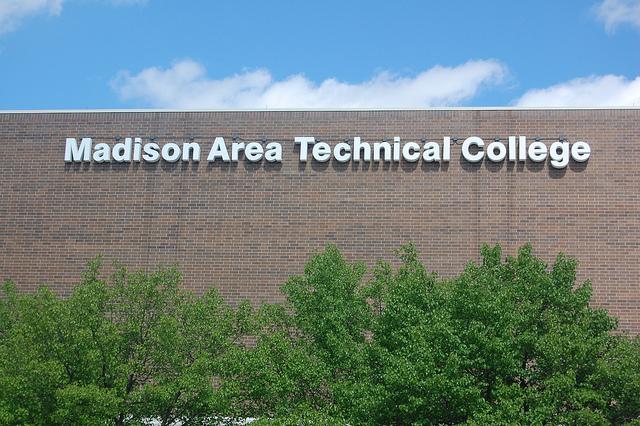Wisconsin’s 16 two-year technical colleges will face a steady increase in performance-based funding over the next five years if the Legislature passes Gov. Scott Walker’s 2015-17 biennial budget this summer.
Paul Gabriel, executive director of the Wisconsin Technical College District Boards Association, a lobbying group for the state’s tech schools, said technical colleges are flat funded. This means there is no change in the amount of money the state will put toward the campuses in the next biennial budget.
However, under the new budget, schools would receive an incrementally higher proportion of performance-based funding each year until 2020, Gabriel said.
Gabriel said currently, 10 percent of state funding for the technical colleges is performance-based. Under Walker’s plan, this proportion would rise to 100 percent over the next five years.
This is not the first time Walker proposed an increase in performance-based funding for the 16 campuses. In the 2013-15 biennial budget, he attempted to increase performance-based funding for technical schools to 100 percent over six years, but the Joint Finance Committee put a cap at 30 percent. Walker then vetoed the cap before signing the final budget.
Gabriel said his organization supports performance-based funding to an extent. The colleges are for the most part performing at high standards and should be rewarded, Gabriel said.
He is concerned, however, with the magnitude of Walker’s proposal.
After 30 percent, performance-based funding becomes too volatile, Gabriel said.
“You could have real winners and losers without any noticeable change in performance,” Gabriel said. “There’s too much at stake dollar-wise.”
Gabriel said performance-based funding might discourage schools from engaging in new programs, for example, because the change could affect what the state considers “high performance.”
Nine different criteria currently make up the performance standards on which campuses are judged, and the individual schools pick the seven most relevant. These include job placement, workforce training and special populations.
Walker’s budget proposes the addition of a 10th criteria, which would reward colleges that award course credit to students for “relevant training not obtained through an institution of higher education,” including training received during the military or in dual-enrollment high school classes.
Donald Moynihan, a University of Wisconsin public affairs professor who researches performance-based funding in public policy, said the broad criteria make this type of funding for technical colleges in some ways different than the hotly contested debates surrounding K-12 schools.
Moynihan said additionally, attendance of technical college is not compulsory like K-12 education, which changes the argument slightly.
Nick Hillman, a UW professor in educational leadership and policy analysis, said many states are grappling with performance-based funding in higher education. This would make Wisconsin one of the most aggressive in terms of technical schools, he said.
“There’s no rationale, there’s no rhyme or reason as to why 100 percent is a desirable figure,” Hillman said.
Allen Phelps, a UW professor of educational leadership and policy analysis, said there is no clear benefit from performance-based funding for community and technical colleges across the United States.
Moynihan and Hillman also said little to no research supports the notion that Wisconsin’s technical schools’ performance will increase with an increase in performance-based funding.

















